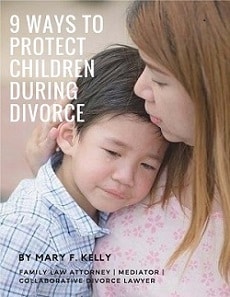Who needs a post nuptial agreement?
What happens when a couple starts negotiating a prenuptial agreement too close to the wedding date and cannot agree on all the terms? Or they have been married for a long time, but disagree on how to manage their finances in the future? A post nuptial agreement can be used to settle a couple’s financial issues. Sometimes it turns into a blueprint for divorce, but it can also offer stability to a marriage if the main conflict is money and who it belongs to.
Postnup agreement v. prenup agreement
A couple can accomplish many of the same goals with a post nuptial agreement as with a prenuptial agreement. In New York State, a postnup can be signed at any time during a marriage. It is effective from the date of signing. Like a prenup, a postnup sets up financial ground rules. It defines what is separate property and what is marital. It also states how the couple has agreed to divide their assets if they get divorced or one of them dies.
A postnup takes effect, of course, after the wedding. This makes it different from a prenup in two ways: the period it governs and the designation of separate property. A post nuptial agreement goes into effect the date it is signed–it can not be extended back to the date of the wedding. If a couple decides to use one spouse’s inheritance to buy a home or pay off marital debt before they sign a postnup, that spouse may not be able to claim the inheritance as separate property anymore.
Separate property during the marriage
In a post nuptial agreement, any property one spouse wants to designate as “separate” must have been kept apart from marital assets during the marriage. If there is a mix of marital and separate property, the other spouse may sign a waiver agreeing to treat the “mixed” property, or part of it, as separate property. This is different from a prenup. Any asset or property a couple designates as separate in a prenup can stay separate if the couple divorces. But once the wedding has taken place, most property acquired by one or both spouses is marital property. Inheritance, gifts and personal injury awards are separate property, if they are kept separate.
Other uses for post nuptial agreements
A postnup can also be used to divide assets after one spouse’s death or if the future of the marriage is in question. So if one spouse gets a major illness, a postnup can say what funds will be used for hospitalization or long-term care. Or if children from a prior marriage want to know that their inheritance won’t go to the new spouse, a post nuptial agreement can list which assets are to be kept separate for them. Sometimes one spouse develops a substance abuse problem or has an extramarital affair, but still wants to stay in the marriage. A postnup can divide the couple’s assets so that if one person spends a lot of money, the other still gets his or her fair share in a divorce.
In some ways, a post nuptial agreement is easier to discuss than a prenup, since there is no fear the other person will call off the wedding. In the postnup process, the couple has already made the commitment to become partners for life. On the other hand, there is no final date—the wedding date—forcing the couple to finish the agreement. So the process may be more protracted. But a post nuptial agreement can provide important financial protection and peace of mind, even for couples who end up staying married.
Copyright (c) 2016 Kelly & Knaplund




